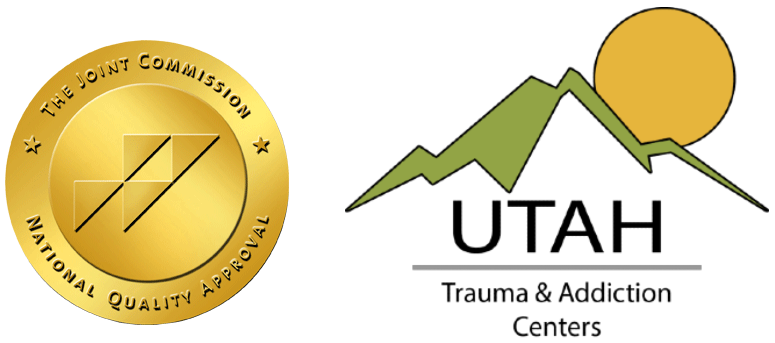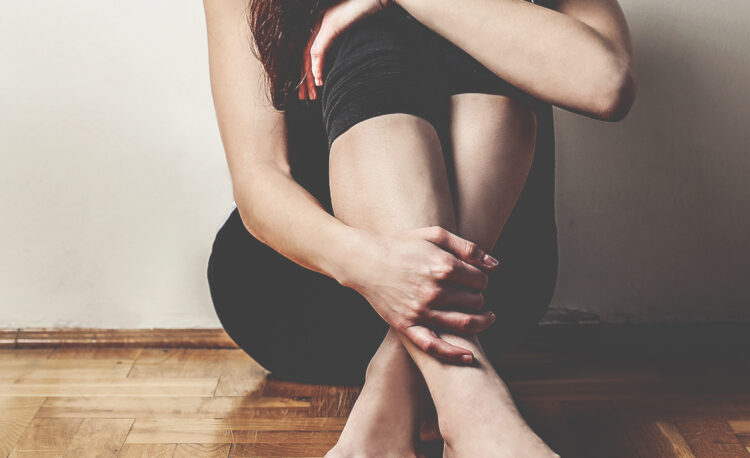What is Depression?
The first thing people should know about depression is that there is a big difference between being depressed and having depression. Being depressed happens to everyone. At some point in your life, you have felt extremely sad. Perhaps a loved one or dear friend passed away and you went through a rough patch in your life or during the winter, you feel a little gloomy. This is not what having depression feels like.
Having depression is different. To be diagnosed with depression, the symptoms must last at least two weeks or more. It interrupts daily routines. It also affects the way one thinks, and how things such as work, school, or other “normal” activities are handled.
The first thing people should know about depression is that it is not a choice. There does not need to be a cause nor a reason. If a person has depression it is not their fault. It is caused by a chemical imbalance in the brain. This chemical is called serotonin. It is serotonin’s job to help regulate anxiety, moods, and happiness. When the brain does not produce enough serotonin, it will affect the person’s ability to experience these emotions.
If you or someone you know is thinking or talking about committing suicide, it’s very important to reach out for help right away. You can call the National Suicide Prevention Lifeline at 800-273-TALK (8255), or call 911.
Different Types of Depression
The list below is just a few types of depression as found in the Diagnostic and Statistical Manual of Mental Disorders (DSM-5). It is a good idea to know as much as possible about the type of depression one has. It is a basic list, but it is not a “one type fits all” and can make figuring out treatment with one’s therapist easier.
Major Depressive Disorder:
This type of depression has two subcategories “atypical depression” and “melancholic depression.” This is one of the most common types of depression. It is mostly found in women.
Bipolar Depression:
This is depression that is related to Bipolar Disorder (Mood Swings.) When a person with bipolar disorder.
Persistent Depressive disorder:
Previously referred to as dysthymia, this is a mild but persistent form of depression diagnosed when the depressive period has lasted for at least two years. Individuals experiencing this form of depression tend to be “slightly low” all of the time. Much like the character “Eeyore” on Disney’s “Winnie the Pooh.”
Postpartum depression:
The depressive period, around two weeks, that last after a woman has given birth. The postpartum depression can make it hard for the mother to fully care for her new baby. Severe cases of this depression can place the infant in danger of being harmed.
Psychotic depression:
Occurs when a person has depression as well as a form of psychosis.
Seasonal affective disorder:
This type of depression is quite common. It is almost completely dependent on the weather. During wintertime, people tend to get a lot less natural sunlight and low in vitamin D. Avoiding social interactions, sleeping longer, and eating more are just a few of the symptoms.
Symptoms of Depression
This is a broad list of different possible symptoms. Not everyone with depression will experience every symptom, however, they will most likely experience more than one. The following list came from the National Institute of Mental Health website:
- Persistent sad, anxious, or “empty” mood
- Feelings of hopelessness, or pessimism
- Irritability
- Feelings of guilt, worthlessness, or helplessness
- Loss of interest or pleasure in hobbies and activities
- Decreased energy or fatigue
- Moving or talking more slowly
- Feeling restless or having trouble sitting still
- Difficulty concentrating, remembering, or making decisions
- Difficulty sleeping, early-morning awakening, or oversleeping
- Appetite and/or weight changes
- Thoughts of death or suicide, or suicide attempts
- Aches or pains, headaches, cramps, or digestive problems without a clear physical cause and/or that do not ease even with treatment
What Does Depression Feel Like?
Even if you have never read the Harry Potter books or seen the movies, you have most likely heard about them. In these books, there are creatures called dementors. These dementors are creatures who feed off people’s happiness leaving them feeling empty. What you may not know is that the world-renowned author of this series, J. K. Rowling, based these characters off the feeling of depression. She says, “It’s so difficult to describe depression to someone who’s never been there, because it’s not sadness. I know sadness. Sadness is to cry and to feel. But it’s that cold absence of feeling — that really hollowed-out feeling (J.K. Rowling).
As J. K. Rowling says, “Depression feels like your ability to feel even the smallest amount of happiness is gone.” The only things you can feel are either negative or a lack of emotion. It is as if you are drowning but can`t swim to the surface, only in circles. So not only do you feel depressed, but you can feel frustrated and bitter as well. This is where treatment options, support groups, and therapy come in.
Rehab Centers for Depression in Utah
Unfortunately, there is no cure for depression. There are, however, many different types of treatment options that can help to deal with depression and making it a bit more manageable. Types of treatment can include different forms of medication, EMDR, Neurofeedback, mindfulness techniques and much more. The effectiveness of these methods vary and are dependent upon the individual and can be discussed with a licensed therapist. Contact Utah Trauma & Addiction Centers to talk to a licensed therapist about our treatment options and rehab centers for depression in Utah.
Mental Health Retreats for Depression
Imagine being in a private home with a beautiful view of Utah Valley. Our mental health retreats for depression happen in a quiet, private, home-like setting. Patients can keep their recovery discreet if they wish, but the depression rehab Utah Trauma & Addiction Centers specializes in can be more successful in the long-term if the family is involved.
Patients can live in a rehab center for depression to receive the focused treatment they need. Within just a few weeks, they can gain the new skills and support system they’ll need to manage and heal depression for a lifetime. Whatever level of depression the patient is experiencing, we customize care within these steps:
- Primary Care:Diagnosing the type of depression and directly helping to stabilize painful emotions for 30 days
- Treatment Plan: A personalized plan for equipping the patient with better skills and support to manage thoughts, actions, and feelings of depression
- Extended Care: A transition out of rehab with a new support system that continues to help the patient heal
Aftercare: Living a Healthy Life with Support
The trauma that leads to depression isn’t created overnight, and the healing doesn’t happen overnight, either. It takes time. We understand that each person has his or her own process, and the length of time needed is different for each.
Once a patient is fully ready, we slowly guide him or her through the next steps toward a regular life but with a wonderful new addition: a caring, understanding support system. The ongoing aftercare stage includes:
- At least 12 months of group support sessions
- Free meetings for life with other alumni of Utah Trauma & Addiction Centers
- A year of private therapy
- A personalized treatment plan to give long-term success and health
If you want to know more about the type of depression rehab Utah Trauma & Addiction Centers can provide, please reach out to us today.
How Can Loved Ones Help?
Friends and family can play an important role in the treatment of depression. It can vary on the person, but the most important thing is to not avoid the person or act as if they are delicate. Avoiding the person because a loved one does not know how to act around or help is only going to make the person with depression feel more alone. Even if one does not always know how to respond, make sure that there is no doubt in their minds that they are loved no matter what and that their loved ones support their efforts in treatment.
It is okay to be blunt, ask questions and show empathy in a spirit of love. Again, make sure the person with depression knows they are loved. Remember, it is not their fault and not a consequence of anything that they have done. Finally, always be willing to suggest or encourage help. Calling the Utah Trauma & Addiction Centers to get information is a great step forward.
In Addition to Treatment
One thing to realize is that if a client has depression, a depressive period will not last forever. Getting treatment for severe depression is important, but there are many other things one can do to help assuage the symptoms.
Another great idea is being active, eating healthy and exercising regularly. There is something restorative and healing about spending time in nature. Try going on a hike! Spend time soaking up the sun. Natural sunlight helps our body create vitamin D which can help brains stabilize our mood. Many people struggle emotionally in the winter. Make sure your body has plenty of healthy fuel. Eating healthy can have a positive impact because healthy diets can increase serotonin production. Getting out of the house and into the world can help you begin to feel normal. This will take time, but the more time one spends isolating, the more they feed the depression.
One may want to consider postponing major life choices while in a “depressed state.” Things such as career choices, divorce, and large financial obligations should probably wait until the person suffering from depression is able to think clearly. Poor choices may just be the depression talking and this decision may be regretted later on. If, after the depression lifts, and one still feels the urge to move, go enjoy life!
Overall, most of these things can really help, but it is important that people realize that depression is not something you quickly get over. There are rarely lasting immediate results, do not beat yourself up over it. Healing can take a lifetime, with ups and downs, but there are ways to find joy.

